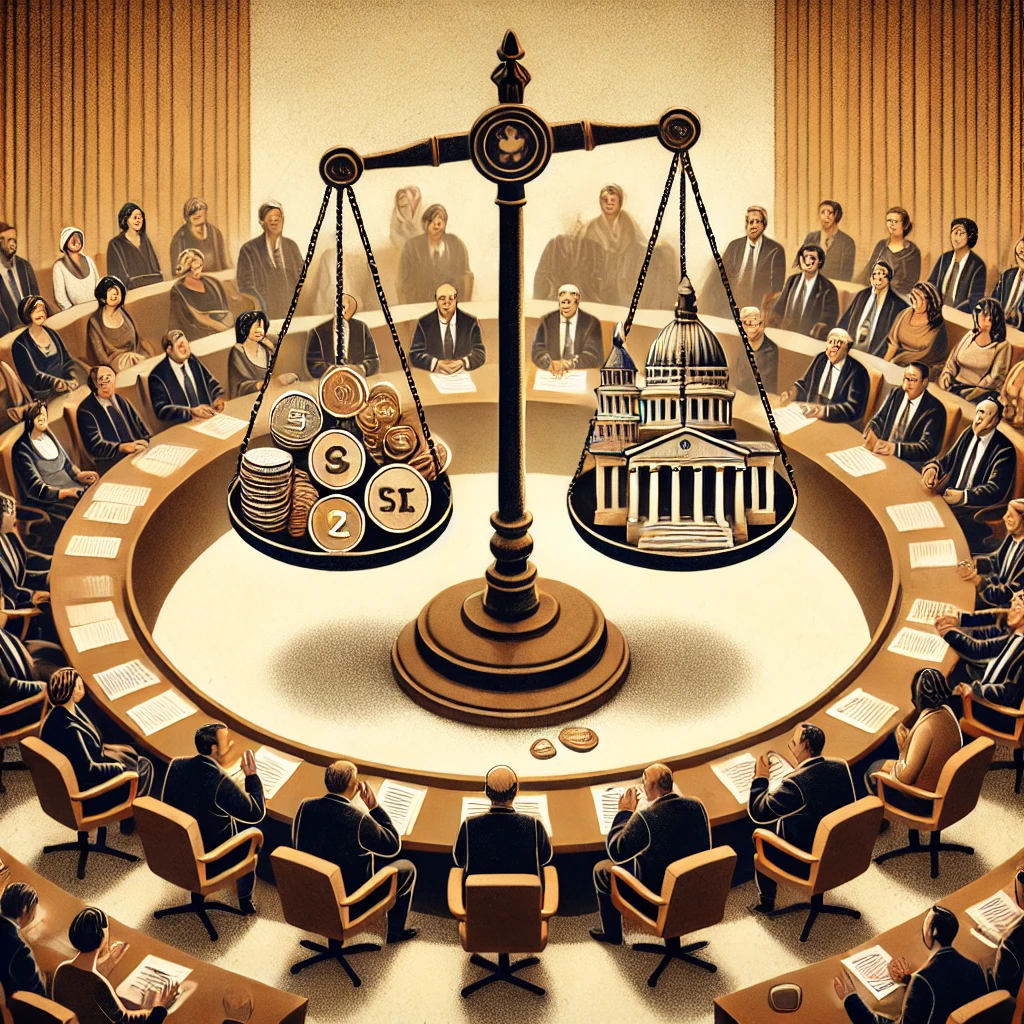|
Edward Harrington Heyburn Audio
Getting your Trinity Audio player ready...
|
A Broken System of Excessive Fundraising
In modern American politics, the staggering amounts of money raised and spent during election campaigns often dwarf the actual importance or scope of the positions being contested. From local offices like city council members to national ones such as congressional representatives and senators, the relentless drive to fundraise distorts the democratic process. For instance, a U.S. House of Representatives seat—a position with a two-year term—often sees candidates raising millions of dollars. Senate races can cost tens or even hundreds of millions. This financial arms race often turns elections into contests of wealth rather than ideas, effectively sidelining less affluent candidates and entrenching a system of inequality.
The excessive focus on campaign fundraising fosters a culture of patronage, where elected officials feel beholden to their largest contributors. This not only undermines the principle of democratic representation but also skews public policy in favor of wealthy donors and special interest groups. Ordinary citizens are left disenfranchised, with their voices drowned out by the interests of the wealthy few.
Tax Exemptions and Their Role in Campaign Finance
The funds raised by political campaigns currently enjoy significant tax advantages. Under U.S. tax law, contributions to political campaigns are not taxed as income for the campaign organizations, nor are they considered taxable gifts for the donors. This exemption allows campaigns to amass enormous war chests with minimal oversight or public accountability. Super PACs and 501(c)(4) organizations, which can spend unlimited amounts to influence elections, further exploit tax loopholes, often without disclosing their donors.
These tax benefits create a distorted system where money flows freely into campaigns but remains largely unregulated and untaxed. This lack of taxation on campaign contributions indirectly subsidizes the political system’s reliance on large-scale fundraising, further entrenching the influence of wealthy donors.
The Case for Taxing Campaign Contributions
Taxing campaign contributions could be a transformative step toward reforming the current system. Such a tax could serve multiple purposes:
1. Reduce Excessive Fundraising:
Taxing campaign contributions would incentivize campaigns to limit their fundraising efforts. By making excessive contributions less attractive, a tax would help level the playing field and shift the focus of elections from money to ideas.
2. Generate Revenue for Public Financing:
The revenue collected from taxing campaign contributions could be redirected toward public financing of elections. This would reduce candidates’ reliance on private donors, fostering a more equitable and democratic electoral process.
3. Discourage Dark Money: Taxing contributions could also deter the flow of dark money into politics. Nonprofit organizations and Super PACs currently exploiting tax exemptions would face greater scrutiny and accountability.
International Comparisons
Countries like Canada and Germany provide valuable lessons in campaign finance regulation. In Canada, strict limits on individual contributions and a ban on corporate and union donations help prevent the excessive influence of wealth in elections. Germany’s robust public financing system ensures that campaigns rely less on private donations, promoting a fairer democratic process. Taxing campaign contributions in the United States could bring it closer to these models, reducing the systemic inequalities embedded in its current system.
Addressing Potential Criticisms
Critics of taxing campaign contributions may argue that such measures would infringe on free speech rights or unfairly burden grassroots campaigns. However, these concerns can be mitigated through careful policy design. For instance, small contributions below a certain threshold could be exempt from taxation, preserving the ability of ordinary citizens to participate in the political process without penalty. Additionally, tax revenues could be used to amplify the voices of small donors through public matching programs, ensuring a diverse range of perspectives in elections.
Conclusion
The disproportionate amounts of money raised for political campaigns highlight a system that prioritizes wealth over-representation. Taxing campaign contributions offers a practical solution to curb excessive fundraising, reduce the influence of wealthy donors, and restore integrity to the democratic process. By implementing such a tax, the United States could take a significant step toward creating a political system that truly serves the interests of all its citizens, not just the privileged few.


